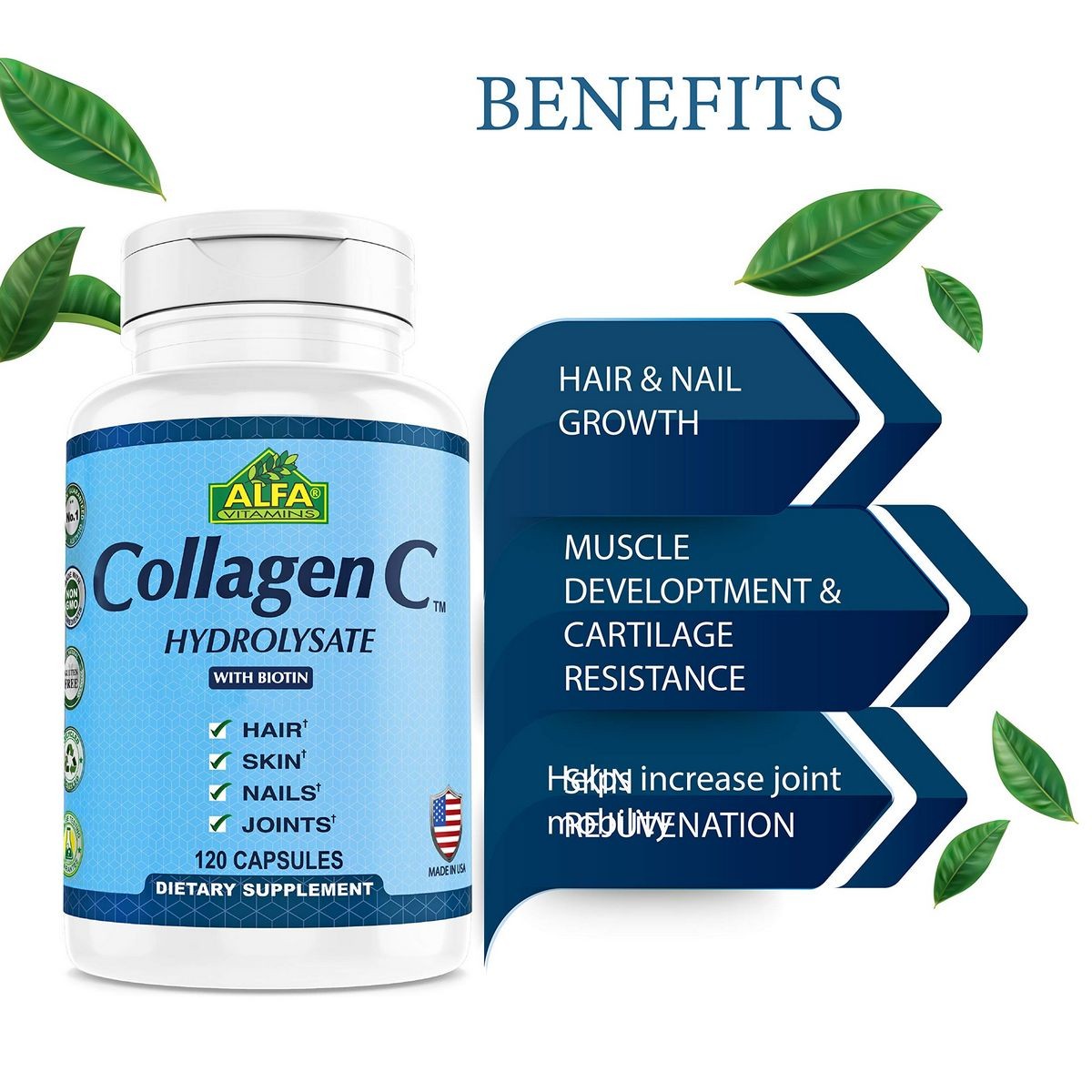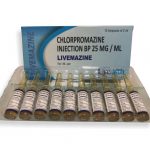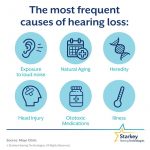
Contents
15 Powerful Anti-Aging Vitamins and Supplements?
Aging is a natural process that can’t be stopped, but you can slow it down and reduce your risk of age-related illnesses through dietary and lifestyle changes. The best anti-aging vitamins and supplements include collagen, vitamin C, selenium, and others.
Aging is a natural process that can’t be stopped, but you can slow it down and reduce your risk of age-related illnesses through dietary and lifestyle changes. For example, anti-aging pills are supplements that help slow down or even reverse the aging process to a certain extent.
Here’s everything you need to know about the causes of aging and the best anti-aging pills to slow down this inevitable process.
Many factors like genetics, environment, and lifestyle contribute to aging. For example, the genes you inherit can influence your risk of developing aging-related diseases. Meanwhile, environmental factors like sun damage, pollution, and toxins can cause oxidative damage to your cells, leading to inflammation and rapid cellular aging. Lifestyle choices affecting your diet, exercise, and sleep can also affect the rate at which you age.
On the other hand, a healthier lifestyle may not stop aging, but it can slow it down. Research shows that several supplements can help reverse the process and prevent age-related health problems.
What are some of the best anti-aging vitamins and supplements?
Here are 15 supplements that may help slow aging:
Collagen
Collagen is a structural protein found in your skin and connective tissues. Aging reduces collagen production, leading to visible signs of aging like wrinkles and sagging skin. Collagen supplements improve skin health and appearance.
Curcumin
Curcumin is a yellow antioxidant compound found in turmeric. Studies show that curcumin has potential health benefits including antioxidant, immunity-boosting, anti-inflammatory, and antimicrobial properties.
Studies have revealed that curcumin even has anti-aging effects. It reduces inflammation, improves brain function, promotes skin health, and prevents oxidative stress, though more research is needed to understand its role in healthy aging in humans.
Coenzyme Q10 (CoQ10) is an antioxidant compound present in your cells. Evidence suggests that supplements with CoQ10 can reduce the signs of aging and improve your health. Specifically, it may reduce fine lines and wrinkles and improve skin elasticity.
CoQ10 also prevents long-term, age-related conditions like inflammation, heart disease, diabetes, kidney problems, and Alzheimer’s disease.
Hyaluronic acid is a substance that lubricates your joints and keeps your skin hydrated and healthy. Its production decreases with age, leading to skin dryness and wrinkles.
Hyaluronic acid supplements can help reverse these signs of aging. A 12-week study showed that the oral intake of hyaluronan improved skin elasticity, removed wrinkles, and hydrated dry skin.
Vitamin C is a powerful antioxidant that boosts skin health by stimulating collagen production. It also provides antioxidant protection against UV light. So, vitamin C may be an effective anti-aging remedy. It also has wound-healing and anti-inflammatory effects, boosts immunity, and prevents age-related health problems.
Vitamin E is an antioxidant nutrient often used in cosmetic products. It protects the skin from harmful UV rays and sun damage. It also destroys free radicals and prevents oxidative damage. These effects make vitamin E a potential anti-aging nutrient. However, more studies are required to study its long-term effectiveness.
Selenium
Selenium is an essential trace mineral that activates antioxidant selenoproteins. It prevents oxidative damage and inflammation, protecting you from certain age-related health conditions.
Zinc
Zinc is an essential mineral that promotes cell functions and immune responses. Research shows that low zinc levels in older people can promote aging and decrease immunity. It also causes changes in the body due to oxidative inflammatory aging. Zinc supplementation can prevent these changes and improve your immune function.
Resveratrol
Resveratrol is a bioactive substance found in peanuts, grapes, red wine, and blueberries. It has antioxidant and anti-inflammatory properties, making it an effective anti-aging supplement. It relieves oxidative stress and inflammation, improves cell function, and regulates cell aging and death.
Omega-3 fatty acids are polyunsaturated fatty acids (PUFAs) found in fish oil and nuts. They help maintain cell function and prevent inflammation. They also improve brain function, heart health, immune function, muscle function, and bone health. Studies show that omega-3 fatty acid supplementation is safe and effective for treating and preventing aging-related health problems.
Green tea extract
Green tea extract contains antioxidant polyphenols like epigallocatechin-3-gallate (EGCG) that have potent antioxidant and anticancer properties. Animal studies show that it prevents UV light-induced oxidative damage and skin cancer growth. It also prevents age-related oxidative skin damage.
Ginkgo biloba is an herb with antioxidant and anti-inflammatory properties. Studies suggest that Ginkgo biloba decreases stress, improves memory, brain function, mental health, and quality of life. It may even help prevent Alzheimer’s disease, Parkinson’s disease, and cancer. It is an effective anti-aging supplement.
Ashwagandha
Ashwagandha is an herb used in traditional Indian medicine to treat illnesses, manage joint pain, and improve general well-being, especially in older people. Ashwagandha supplements promote cell function and lubricate joints. Studies show that ashwagandha root extract improves sleep, reduces stress levels, and has anti-aging effects.
Nicotinamide mononucleotide
Nicotinamide adenine dinucleotides (NAD+) are molecules that decrease due to aging. Low NAD+ levels can lead to oxidative stress, cell damage, impaired brain function, and inflammation.
Nicotinamide mononucleotide (NMN) is an antioxidant molecule that forms NAD+. Lab and animal studies suggest that NMN has anti-aging effects. Specifically, NMN supplements can delay cell aging by increasing NAD+ levels in your body. However, more studies in humans are needed to understand the long-term safety and effectiveness of NMN supplements.
Astragalus
Astragalus membranaceus is a medicinal herb used in traditional Chinese medicine to treat diseases and delay aging. Astragalus contains antioxidant and anti-inflammatory compounds. Clinical studies suggest that Astragalus extract can reverse the signs of aging and protect your organs, immune system, and body function.
Other considerations
Taking anti-aging pills may help you look and feel younger, but certain supplements may interact with other medications and have unexpected side effects. Speak to your healthcare provider before starting new supplements. They’ll give you specific doses based on your needs.
Additionally, along with whatever supplements you choose to take, you must maintain a healthy lifestyle with a balanced diet, regular exercise, and enough sleep to promote your well-being.
QUESTION
Aging and Disease: "Anti-Aging Implications of Astragalus Membranaceus (Huangqi): A Well-Known Chinese Tonic."
Aging Clinical and Experimental Research: "Selenium, aging and aging-related diseases."
Antioxidants: "Ginkgo biloba in the Aging Process: A Narrative Review," "Which Is the Most Significant Cause of Aging?"
BioMed Research International: "Effects of Curcumin on Aging: Molecular Mechanisms and Experimental Evidence."
Cureus: "Efficacy and Tolerability of Ashwagandha Root Extract in the Elderly for Improvement of General Well-being and Sleep: A Prospective, Randomized, Double-blind, Placebo-controlled Study."
Dermatology Practical & Conceptual: "Collagen Supplements for Aging and Wrinkles: A Paradigm Shift in the Fields of Dermatology and Cosmetics."
Frontiers in Physiology: "Coenzyme Q10 Supplementation in Aging and Disease."
Journal of Advanced Research: "Nicotinamide mononucleotide (NMN) as an anti-aging health product – Promises and safety concerns."
Journal of the American Academy of Dermatology: "Green tea and the skin."
Indian Dermatology Online Journal: "Vitamin E in dermatology."
International Journal for Vitamin and Nutrition Research: "Green Tea Extract Suppresses the Age-Related Increase in Collagen Crosslinking and Fluorescent Products in C57BL/6 Mice."
Molecules: "Curcumin as Prospective Anti-Aging Natural Compound: Focus on Brain."
National Institute on Aging: "What Do We Know About Healthy Aging?"
Nutrients: "Oral Hyaluronan Relieves Wrinkles and Improves Dry Skin: A 12-Week Double-Blinded, Placebo-Controlled Study," "The Role for Dietary Omega-3 Fatty Acids Supplementation in Older Adults," "The Roles of Vitamin C in Skin Health."
Oxidative Medicine and Cellular Longevity: "Effects and Mechanisms of Resveratrol on Aging and Age-Related Diseases."
Pathobiology of Aging and Age-related Diseases: "Zinc, aging, and immunosenescence: an overview."


